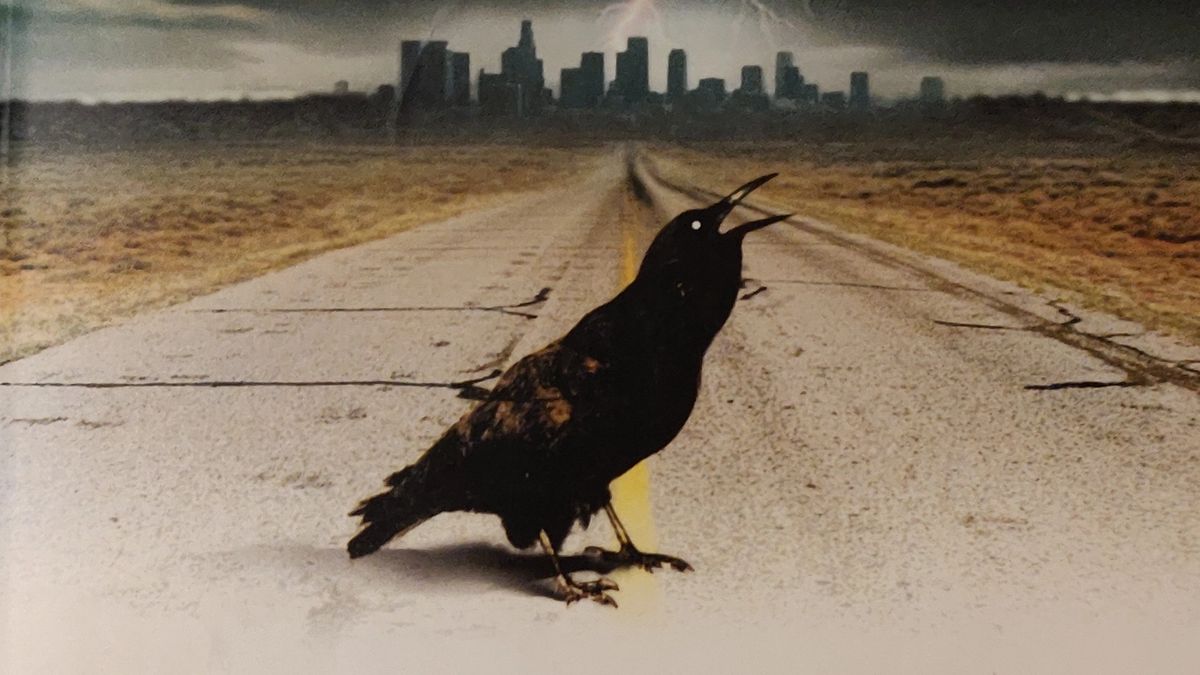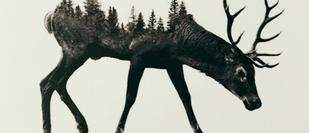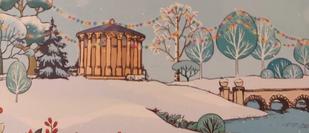
The Stand by Stephen King
If the writing of this review were to have a soundtrack, it would be O Fortuna which for those among us of a certain age is the music from the Old Spice advert. This read has been truly epic....and hard. Before we get stuck in, I must apologise for the lateness of this review, I was hoping to get the review up on the Blog in time for Halloween, but family events overtook somewhat, and if I'm honest I needed to read something a bit lighter before returning and finishing The Stand. So put the kettle on, settle in and buckle in, this review is going to be loooooonnng.
The edition I read is the Complete and Uncut edition. It is, for want of a better description, a tome weighing in at just over 1400 pages. This novel features on the BBC Big Read list at number 53 and is considered Stephen King's masterpiece. For ease of reading, the novel is split into 3 parts; Captain Trips, On the Border and The Stand. So my first piece of advice would be to treat it as 3 separate reads rather than face the whole book in one go.
The first part, Captain Trips, covers the Plague and starts with one of the most tensely written scenes as a young army man, Charlie, after an accident at the army base where he is stationed, desperately gathers his family before the base is fully locked down. A few days later his family are all dead and Charlie is exhibiting terrifying flu like symptoms.
I have to say, because of the times we are living in, this reading felt incredibly uncomfortable and near to the bone. Stephen King writes majestically about the transmission of the disease. People go about their everyday lives with a cough and we witness how easy it was for the Superflu to infect others. It was disturbing to read and almost prophetic as to our current times. Gradually as the virus spreads, people try to flee, shops are stripped bare and then looted and the Authorities become quickly overwhelmed. It was at this point that I began to wonder if I had made a mistake reading a book about a Pandemic during a Pandemic. It was too near the mark.
In the midst of this are a small group of people, who for whatever reason are immune to the disease. They tend to their loved ones and seek out other survivors, but begin to have strange and terrifying dreams about a 'Dark Man'. It is at this point that we start to identify the key players in the story. The characters are well rounded, flawed and honest and for some it is unclear if they are heading for the light or the dark.
Book 2, On the Border concerns the establishment of a new society. Disparate groups form, dreaming of the 'Dark Man', a corn field and an old woman who will show them the way. Gradually the groups head to Boulder and the old woman becomes a spiritual leader. Glen Bateman, a Sociology professor provides commentary as the community seeks to rebuild the society that has been destroyed. Committees are created, censuses are taken and a society of sorts is formed. At the same time, we are aware that the Dark Man is establishing a society of his own in Las Vegas. This part of the book feels considerably slower and a lot drier.
There are number of biblical elements in this part. Mother Abigail, the old woman of people's dreams undergoes her own biblical journey choosing to go into the wilderness. Followers of the Dark Man bind themselves uncomfortably to him, even when they realise the price that their actions will take. The Dark Man is a daemon in a man's body - lawless, powerful and tricky.
Part 3 concerns the Stand between Light and Dark as the key players put their faith in God and travel to Las Vegas. If I'm honest, this part raced through, especially compared to the previous book. The main denouement lasted only a few chapters before the journey back home. It was quicker paced and at times there is a Lord of the Rings feel to the novel as journeys are made and miraculous things happen.
So how do I sum up my feelings for this novel? I saw a fantastic quote on Instagram which said ' There is no such thing as a bad book, it's just not the book for you' and I think this is the crux of my issue here. Stephen King is a master storyteller. I have never felt such horror as reading about the pandemic which has strong echoes of our current situation. It felt like Stephen King had a crystal ball when he wrote the novel back in 1978. This writing is hard to beat, his characters are well-written and believable as ordinary people coping with a ghastly situation.
Years ago, I read Stephen King's 'Rose Madder' a book that fused a story about domestic abuse with the legend of the Minotaur. For those struggling to understand why a victim of domestic abuse chooses to stay with their abuser, I would say read this novel. The portrayal of the relationship and emotion was truly outstanding. This is where Stephen King excels, his understanding of human relationships and his ability to tell that story.
But, and there is always a but, I slightly started to lose interest when it came to the re-establishment of Society, which felt dry and slow, but it was a means to an end when someone asked why they were trying to rebuild instead of starting anew. It was an interesting comment on today's world.
I do believe that the worst horrors are those you can imagine yourself, which is why I can watch a 'slasher' movie, but absolutely cannot watch anything with Poltergeists, possession or strange children. It is for this reason I struggled with 'The Dark Man'. Whilst he committed horrific atrocities he just did not scare me enough. But then if he had, I would not have read the book. And this is why the novel was not a good fit for me.
The one thing I do recognise is the influence this novel has had. Without this book, I don't believe we would have had 'The Walking Dead' for instance. King captures the psyche of a collective of people in all its brutality, sending people to their death even when they are the good guys.
So, in conclusion, this does deserve its place on the BBC Big Read. It is an epic book written by a man with a real gift and a master of creating believable and honest characters dealing with a plausible situation. Where I start to lose interest is the horror. It's a good read, I'm pleased I read it, but it was not the book for me. Right Book, Wrong Girl.

